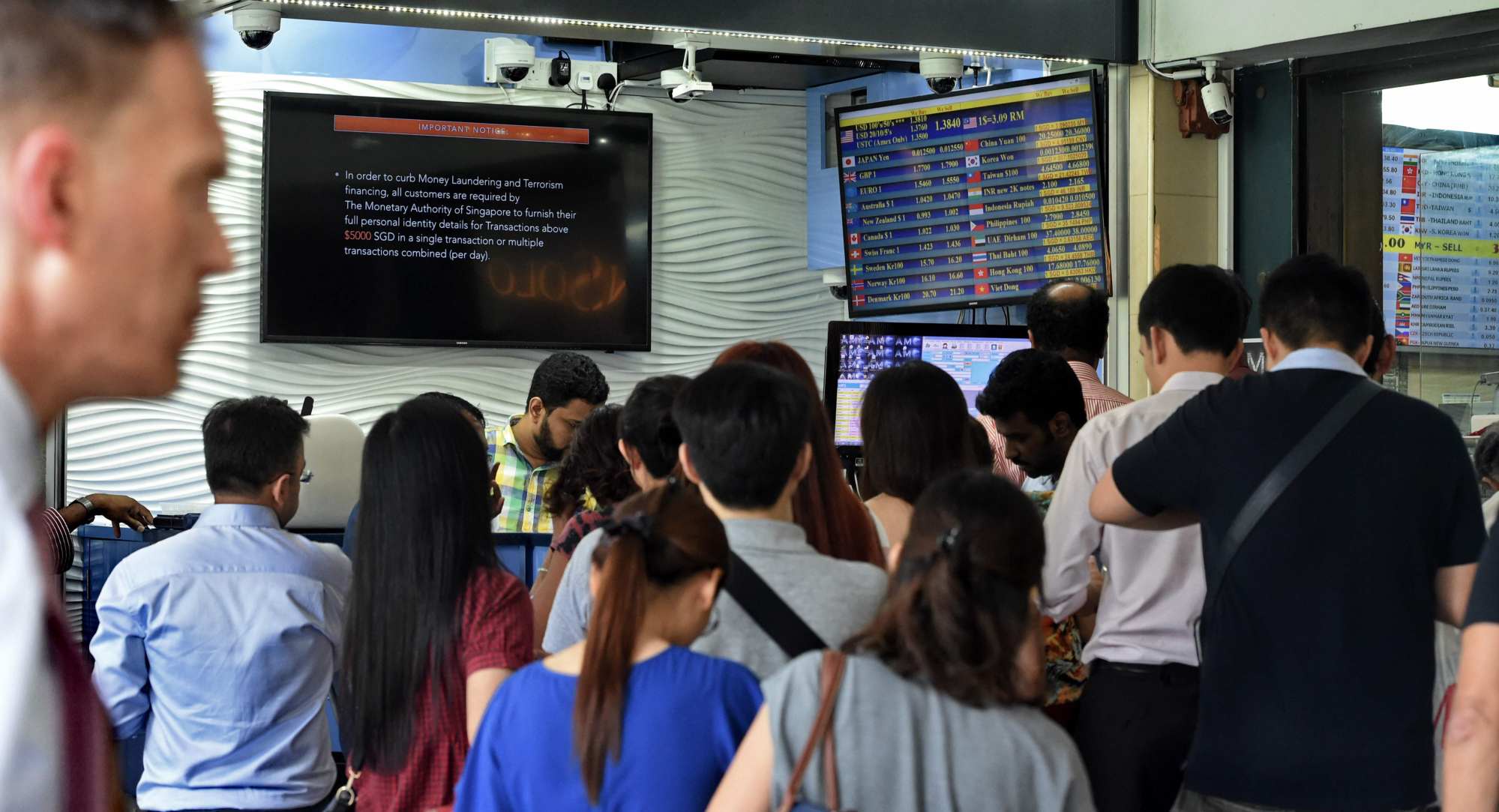3 Chinese workers sue Singapore remittance firm for US$48,000 after mainland police freeze money
Singapore’s US$1.3 billion probe exposes Chinese criminals’ paid-for passports
Singapore’s US$1.3 billion probe exposes Chinese criminals’ paid-for passports
Police in China have blocked hundreds of remittances from Singapore, many of them sent by Samlit, a licensed money changer based in the city’s Chinatown area, according to complaints made to authorities in Singapore.
In the lawsuit, Tan Mingshi said Chinese police allegedly froze 250,000 yuan that was transferred into his wife’s bank account in 2022 because of “suspicion of money laundering.” Only after he followed police instructions to return to China and transfer 142,226 yuan to “scam victims” were the remaining funds released, according to court documents.
Peng Fang Fang, another claimant, said she gave S$40,000 to Samlit to send the equivalent of about 195,600 yuan to her account in China, only to have most of it frozen by police. Qi Chao, the third claimant, said most of the S$10,576 moved to his Chinese bank account was frozen as the police investigated his “illegal activities” related to the transfer, according to the court filing.
Like Tan, Peng said she returned to China to answer questions from police. Qi also said he had to comply with instructions from police. Their frozen funds were transferred out of their bank accounts, with Peng notified that this was done by the Chinese police bureau, the lawsuit states. All three said they followed police orders “for fear of criminal consequences,” the suit alleges.

None of the claimants has been accused of any wrongdoing related to the fund transfers, according to their lawyer Pang Khin Wee of Hoh Law Corp. Pang said they are all blue-collar workers who have lived in the city state for years.
In its defence filed to the court, Samlit said none of the claimants provided “satisfactory” evidence backing their frozen money claims. Samlit and its lawyer did not reply to emailed requests seeking further comment.
As of December 15, there have been more than 670 complaints to Singapore police about frozen remittances to China worth a combined S$13 million, according to authorities. Almost two-thirds of the reports were linked to Samlit, they added.
In response to the slew of seizures, the Monetary Authority of Singapore ordered remittance firms to only use banks or operators of a card network such as Union Pay International when sending funds to China.
The remittance firms had often used overseas agents to save costs, rather than making direct bank transfers, MAS said in a statement last month. The restrictions are in place for three months starting January 1, with a possible extension.
China’s anti-money-laundering drive entangles legit remittances from Singapore
China’s anti-money-laundering drive entangles legit remittances from Singapore
The directive wasn’t related to any specific money laundering concern, the MAS said on its website in December.
The MAS and the Singapore police said at the time they haven’t received any information indicating that remittance companies have been involved in money laundering or scams, or that the funds were frozen because these firms had transferred proceeds from any criminal activity.
Singapore is seeking clarity from China’s government on how remitters can unlock their money, Alvin Tan, a minister of state, said earlier this month. China is the world’s third-largest remittance recipient, netting US$50 billion in 2023, according to a December report by the World Bank.
The Chinese embassy and government agencies haven’t responded to queries seeking comment on the situation.

